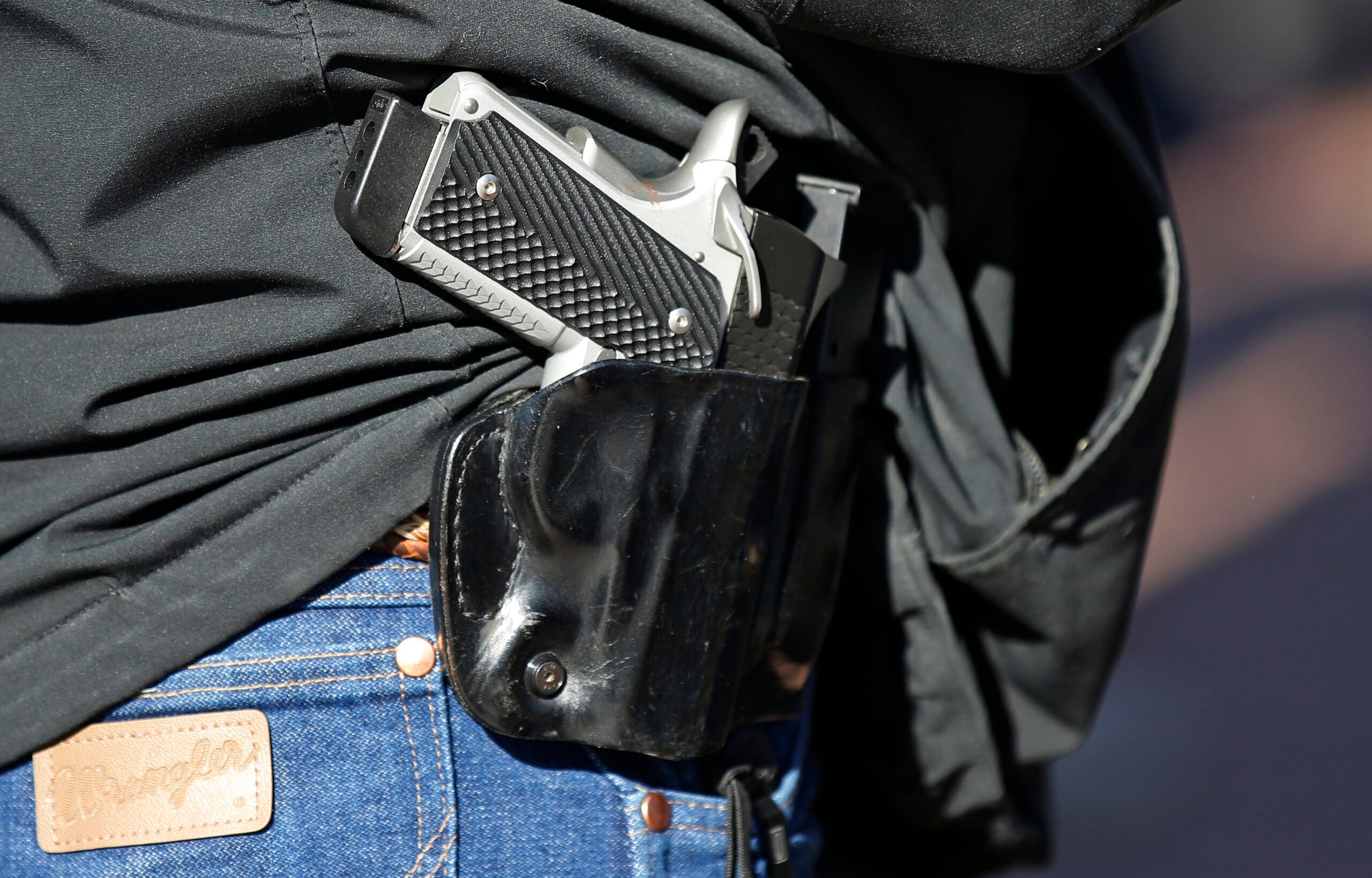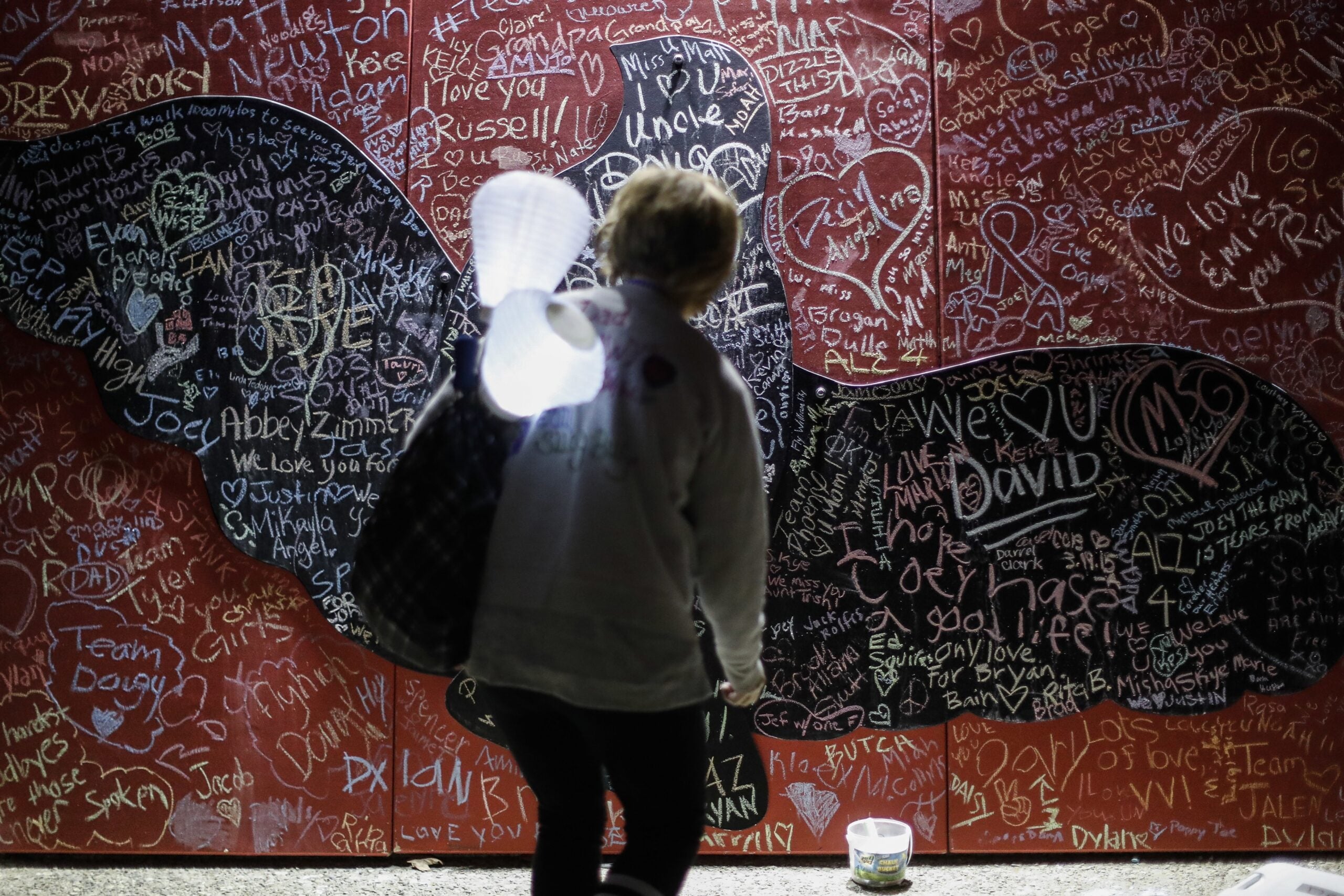Republican state lawmakers are pushing a plan that would lower the minimum age to legally carry a concealed weapon in Wisconsin.
Right now, a Wisconsin resident needs to be 21 years old before they can apply for a concealed carry permit. The GOP-backed bill would lower it to 18.
The measure’s sponsor, state Rep. Shae Sortwell, R-Two Rivers, said the 21-year cutoff is arbitrary when you consider that 18-year-olds have the right to vote or go to war.
News with a little more humanity
WPR’s “Wisconsin Today” newsletter keeps you connected to the state you love without feeling overwhelmed. No paywall. No agenda. No corporate filter.
“It is our obligation as the state Legislature under our oath to the Constitution of the United States and oath to the state constitution to ensure equality before the law,” Sortwell said at a public hearing on the plan.
Several gun rights groups are supporting the plan, including the National Rifle Association, Safari Club, Wisconsin Firearms Owners Inc. and Wisconsin Gun Owners Inc.
Opponents include the city of Milwaukee, Children’s Hospital of Wisconsin, End Domestic Abuse Wisconsin and the Wisconsin Anti-Violence Effort (WAVE).
WAVE executive director Jeri Bonavia said her group is opposed because under federal law, anyone aged 18 to 20 can’t legally purchase a handgun from a federally licensed firearm dealer.
“Which means that this age group that they’re talking about would likely need to be purchasing their gun from the gray market, from private sellers,” Bonavia said. “Which means that there would be no background check conducted on those purchases.”
Bonavia said she was also concerned that giving more young people access to guns would make everyone less safe.
There have been efforts to change federal law. During his testimony, Sortwell cited a July ruling from the 4th Circuit U.S. Court of Appeals in Virginia that would have struck down the 21-year age requirement for handgun purchases as unconstitutional. In that case, Judge Julius Richardson wrote that “we refuse to relegate either the Second Amendment or 18- to 20-year-olds to a second-class status.”
“Our nation’s most cherished constitutional rights vest no later than 18,” Richardson wrote.
But just months later, the same court threw out its earlier opinion, ruling that it was moot because one of the plaintiffs turned 21 before the mandate was issued.
Richardson wrote the order vacating the original ruling, but argued that the public would “still retain some benefit” from the earlier opinion because the exchange of ideas would be a “persuasive source.”
Richardson’s colleague, Judge James Andrew Wynn, challenged that assertion.
“I write separately to emphasize that while, thanks to today’s technology, all vacated opinions remain available in the public sphere, they have no legal value,” Richardson wrote. “If there is any persuasive value arising from vacated opinions, it can be no more than the value of newspaper editorials.”
Richardson was nominated to the court by former President Donald Trump while Wynn was nominated by former President Barack Obama.
Wisconsin Republicans are also considering other gun legislation during the remaining months of the state’s legislative session. That includes a plan that would let people with concealed carry permits keep guns in their vehicles on school grounds.
Wisconsin Public Radio, © Copyright 2025, Board of Regents of the University of Wisconsin System and Wisconsin Educational Communications Board.






